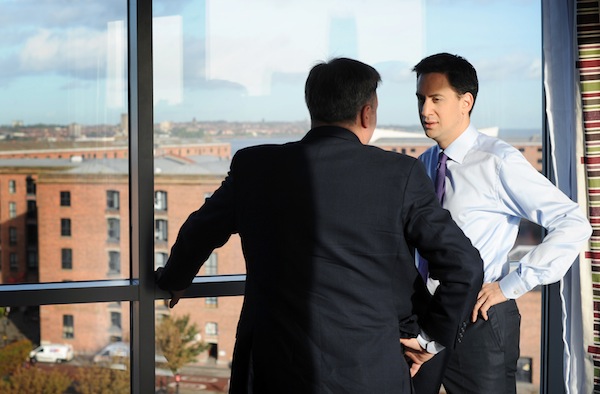Ed Balls has just given his post-Budget briefing in parliament. The striking thing about Balls, no matter how much you might disagree with him, is how much he relishes these occasions. His whole face lights up, like a large Cheshire cat that has spied a snoozing mouse, as he goes in for the kill. He even went through a list circulated by CCHQ of ‘questions for Labour’. No wonder some Tory MPs wish they had someone on their side who loves the political game as much as the Shadow Chancellor.
Now, Balls had plenty of soundbites: he has calculated that you’d have to drink 50,000 pints of beer a year to make up for the impact on personal income of other tax rises and cuts. And he has an imaginary family where one parent works and the other cares for the two children, with a £20,000 annual salary, which would apparently be £381 worse off this year.
But what was really interesting was how much emphasis Balls continues to put on the cut to the 50p rate. He told us, rather theatrically, that he had seriously believed the Tories were going to U-turn on it:
‘When I said on the Marr programme to George Osborne, you should not go ahead with the top rate tax cut, I absolutely meant it. Ed Miliband and I sat down yesterday and wrote a full page of his speech of how we would respond to cancelling the 50p tax cut because genuinely we thought if he had any sense, he would.’
Miliband still focused on the 50p in his speech, devoting a considerable section to waving at a stony-faced Tory frontbench and shouting ‘are they getting the 50p rate? Okay, hands up if you’re not getting the 50p tax cut! Come on!’
This obviously shows how potent the decision to cut that rate was: Osborne repeated his justification for it in his speech today. But Labour’s response did sound rather old, as though Miliband was just digging out a stock speech he and Ed Balls have been using ever since 21 March 2012. And the problem for Miliband and Balls, as they get closer to the 2015 general election, is that they can’t keep mocking the government for the decision without addressing whether they’d put the rate back up themselves when they return to government. Given Gordon Brown only had it for a month himself, they might find it rather less attractive when they’re setting out their own fiscal plans.







Comments